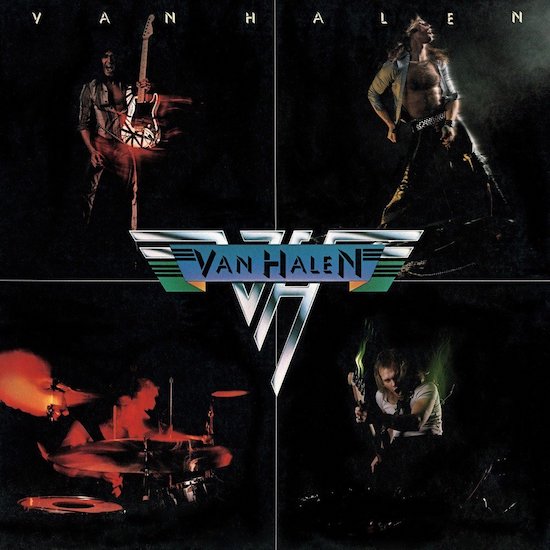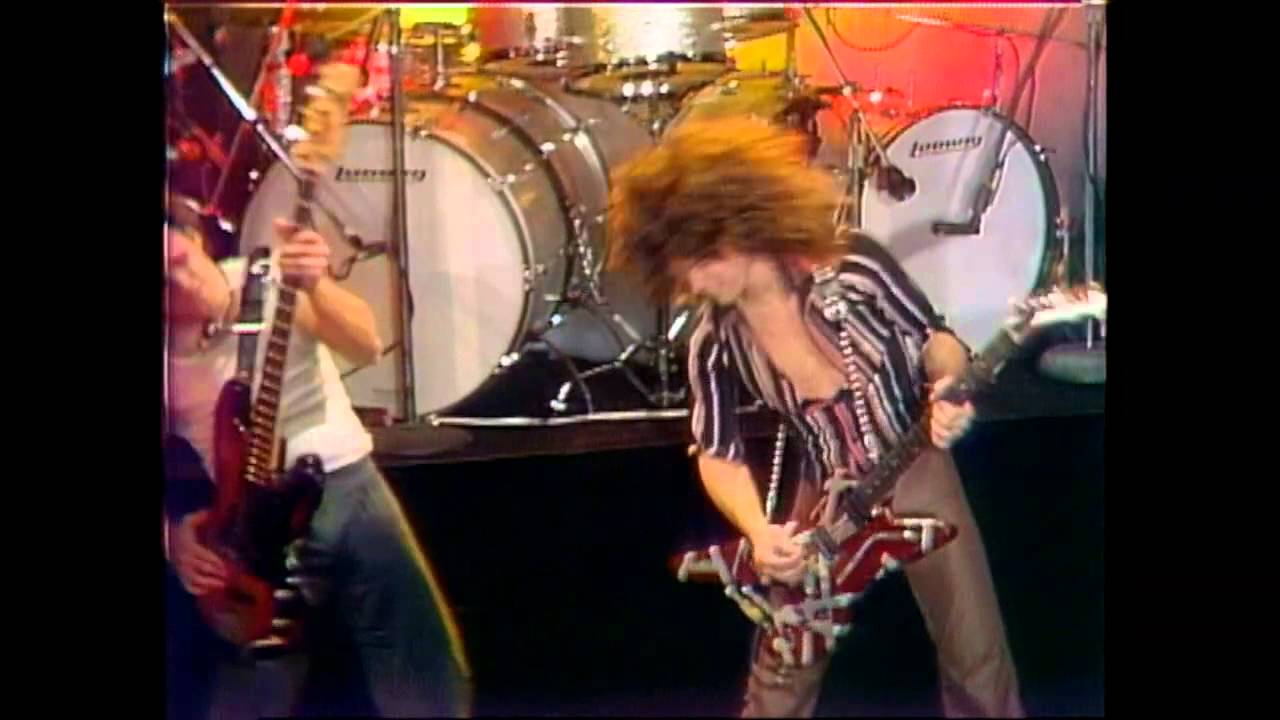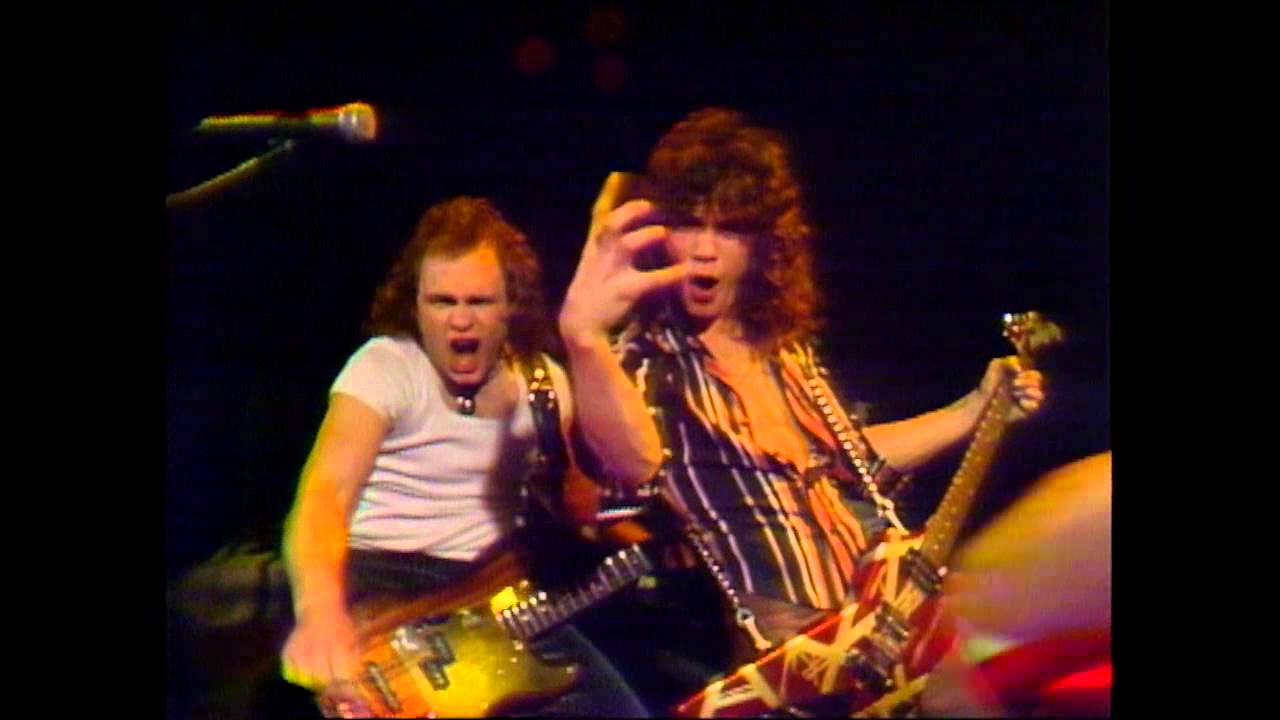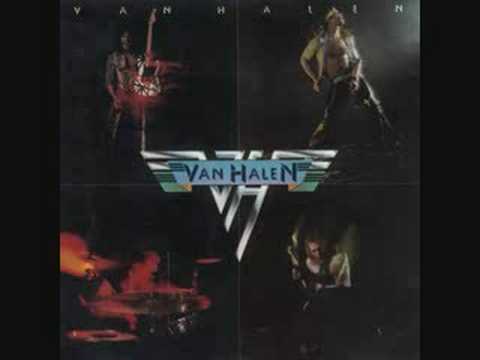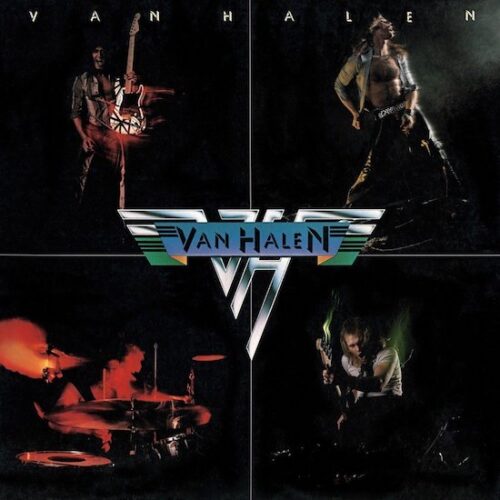Van Halen’s first album was Californian to the core. It was long days in the sun, longer nights in the bars, open topped cars, consequence-free sex. Van Halen were the Beach Boys’ squalid younger cousins, freed from Brian Wilson’s curse of self-examination, and the pressure to conform. They were what the Beach Boys might have ended up like – socially, behaviourally, rather than musically – had Dennis Wilson been entrusted the job of leading them. They were unruly, exciting, liberating. They were a great pop group as well as a great rock band.
Van Halen became the first and greatest group to be both pop and rock simultaneously because they had to. First, they had a singer who didn’t really care for hard rock – David Lee Roth loved soul, funk and R&B above all else – even if the Van Halen brothers were dedicated to it. Second, they formed in the 1970s at a time when Los Angeles was not the hotbed of heavy rock it would be a decade later. To build an audience, Van Halen had to woo fans: playing parties, then bars, then clubs, they had to play what audiences wanted to hear. That meant covers.
“We’d turn on the radio to hear what the music fashion was that week and take it from there,” bassist Michael Anthony told Guitarist in 1993. “Horn bands like KC And The Sunshine Band were big then, so we learned all their stuff.” Or as Eddie Van Halen told the Los Angeles Times shortly before the release of their debut album: “We were supposed to make sure people got into the bar, not into the band.”
They got a foothold in Hollywood, with the support of Kim Fowley and Rodney Bingenheimer, thanks to the interest in punk – compared to the Laurel Canyon singer-songwriters, and the soft rock set, Van Halen seemed like a street band – and began playing the clubs of the Sunset Strip. It was there, at the Starwood, that Warner president Mo Ostin and staff producer Ted Templeman saw them in June 1977. Templeman was convinced he was watching a new Charlie Parker, but playing guitar rather than sax, and knew Warner had to sign the band – despite them already having chalked up scores of rejections, and been taken up by then discarded by Gene Simmons of Kiss, who had recorded some demos with them. What Ostin and Tempelman realised was that Van Halen were not just another hard rock band. Despite having been together for five years, they sounded new. They sounded different.
Tempelman – a former member of Harper’s Bizarre – and engineer Donn Landee deserve a large part of the credit for the brilliance of the first Van Halen album. After working on demos with the band – they recorded 28 tracks in two hours – Tempelman realised they were best recorded live, and took them to Sunset Sound Recorders, which was little more than a concrete box room. Tempelman and Landee gave the band a live sound that was most unlike the prevalent major label sound of the day. Instead of separating instruments and keeping things dry, Tempelman – recording early takes with very few overdubs – let instruments bleed into each other. But because of the lack of overdubs, Van Halen is not filled with noise: there’s so much space in there that you almost feel inside the room.
All that would be irrelevant, though, were it not for the songs. As well as producing, Tempelman A&Red the album, but he was given rich material to work with by the band. I’ve written for tQ before about the revolutionary impact of Van Halen, but the reason their revolution was possible was not because listeners were simply dazzled by Eddie Van Halen’s playing (though many were), or because they were excited by the possibilities of hard rock that broke away from the template (though doubtless that was true, too), but because the songs were so fucking good.
From the opening of ‘Runnin’ With The Devil’ – car horns squealing, and fading into the the dull thud of Michael Anthony’s bass, before Eddie Van Halen enters with one of those riffs that begins in a characteristically hard progression before leaping skywards in a manner that symbolises the album’s commitment to pop – Van Halen’s break with the past is anchored in the force and concision of the writing. The writing is backed by the fluidity of the playing: those five years had turned Van Halen into a ferociously tight band; they could play this stuff almost without thinking. You can hear the precision, throughout the album, in the way so many solos have no rhythm guitar behind them – because of the live recording, and the minimal overdubs – with Eddie Van Halen dropping the riff to solo, then returning in precisely the right place, as if the solo were an offroad excursion that delivered him back to the highway just where the traffic eases and he could reenter with speed.
There are weak links on Van Halen – the cover of John Brim’s ‘Ice Cream Man’ is filler – but it’s remarkably strong. As well as ‘Runnin’ With The Devil’, ‘Ain’t Talkin’ ’Bout Love’ is a signature song, with ‘Jamie’s Cryin’’ and ‘Atomic Punk’ not far behind. The album’s other cover, a version of The Kinks’ ‘You Really Got Me’, is that rarity: a cover version that is almost as important as the originals, even on a song as hoary and well worn as that one.
It’s not that they do anything remarkable to the structure: it’s the same monstrous riff, the same topline melody, the same chorus. What’s astonishing, perhaps, is that by taking an old song – though it’s worth remembering it was only 13 years old at the time they recorded it – Van Halen showed how clean their break with the past had been. ‘You Really Got Me’ allowed them to show off their clarity and precision – it’s the best example on the album of Eddie Van Halen’s ability to switch between rhythm and lead – and to allow listeners to compare and contrast. For a measure of the achievement in making that song sound new, it’s as if a new band today were making their name by covering ‘I Bet You Look Good On The Dancefloor’ – a record as seismic in 2005 as ‘You Really Got Me’ had been in 1964 – in a manner that made it seem wholly separate from 2005 and utterly of now. It’s unimaginable.
But the choice of ‘You Really Got Me’ is instructive for other reasons. It links Van Halen back to an age before rock music had become bloated and self-indulgent, when its principal purpose was to shoot adrenalin into the cultural bloodstream (it’s a paradox that ‘Eruption’, a solo guitar instrumental, proved to be the most significant moment on the album. It’s a paradox, too, that Eruption wasn’t intended to be a solo instrumental – it was Eddie Van Halen warming up for 102 seconds when Landee happened to have left the tape rolling).
Van Halen didn’t record their first album to be “important”, even if that’s what the record proved to be. They recorded it to be a joyride, to get them girls, to get rich. They recorded it for the same reason Elvis recorded ‘Mystery Train’, the Stones recorded ‘Come On’, the Kinks recorded ‘You Really Got Me’. They recorded it because the music was bursting out of them and because they could. That’s why, 40 years later, it still sounds perfect. Because, like the greatest rock music, it sounds unfiltered.

